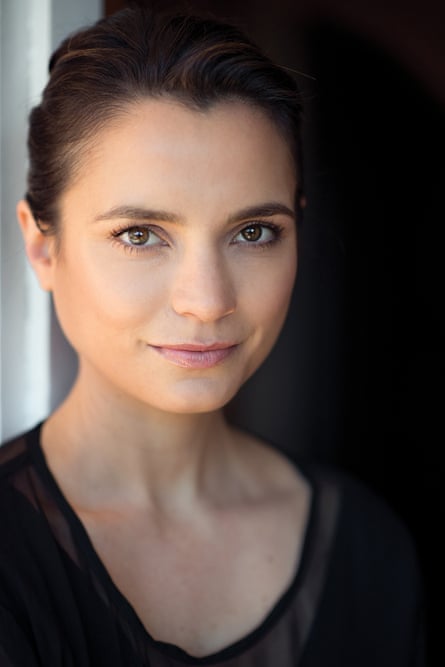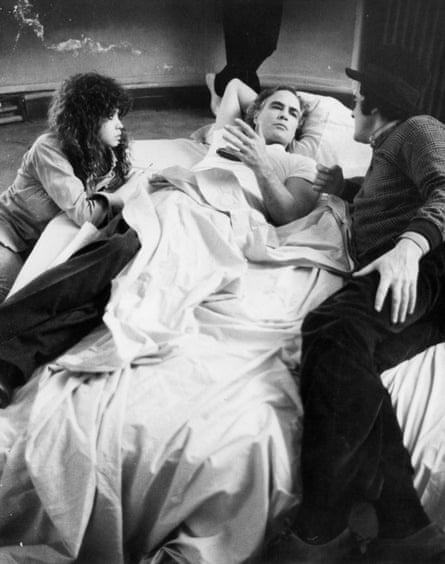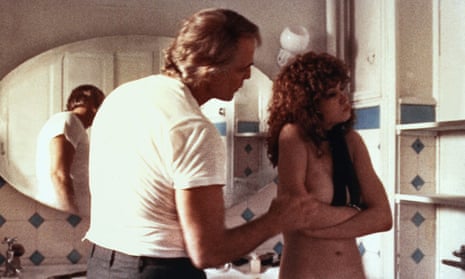Once, before filming an intimate scene, my director sat my male co-star and me down with some Barbie dolls. She wanted to take us through exactly how we were going to do it on screen – how we would position our bodies, where the camera would be. She wanted to make us feel comfortable about something that is awkward and difficult to shoot by empowering us with knowledge about what we were about to do.
I’ve experienced similar care when shooting scenes of violence – when playing roles where I was kidnapped, assaulted, bound and gagged; ones where I had chairs hurled at me and had been thrown across a room. There were always strict protocols in place to avoid injury – but even then, when the camera rolled and my fellow actor performed with all of the aggression required to make their performance believable, my adrenaline kicked in. My innate fight or flight instinct made it difficult to remember it was all pretend, and as a result the experience felt close to reality.
Roles involving sex or violence are always tricky, and I’ve been lucky to have been treated with appropriate respect during my acting career so far. So it was with a particular sadness and anger that I read this week the revelations about the filming of the Last Tango in Paris.
While shooting the infamous “butter rape” scene, Maria Schneider, it seems, was treated horrendously. In a video that resurfaced this weekend, director Bernardo Bertolucci said he and Marlon Brando had conspired to surprise Schneider during this scene in order to capture her “humiliation”. He clarified those comments this week: Schneider knew about the violent nature of the scene, he said, but was unaware that her co-star would use butter as a lubricant.
In a 2007 interview with the Daily Mail, Schneider, now dead, claimed she felt “a little raped” after the scene was filmed. “I was so angry … you can’t force someone to do something that isn’t in the script, but at the time, I didn’t know that,” she said.

Even with Bertolucci’s clarification in mind, there is still a sinister aspect to his art-making methods”.
Bertolucci had said he wanted Schneider to “react as a girl and not as an actress”; that to “make movies sometimes, to obtain things … we have to be completely free’’.
But there was no freedom for her, because freedom is tethered to feeling safe. Having to portray violence involves an element of real fear and distress, because removing oneself completely is impossible. But once trust is lost between an actor, their co-star and director, the veil of performance drops – and the threat is real.
There is a moment in that scene where you witness Schneider’s horror as she realises she has lost all power. From this instant on it is not two actors working together; it is an older, male actor playing out his scene at the will of a male director, with a young actress being dragged along.
I can’t imagine those roles being reversed; Brando being brutalized only to discover midway through filming that Schneider and Bertolucci had conspired to add an element of humiliation.
The argument that the action is justified for the sake of an authentic reaction is bogus. It is called “acting” for a reason. It’s not supposed to be real, it is pretending. The magic of an incredible performance comes when an actor delves into their imagination and taps into emotions that are very real; it often leaves us physically and mentally drained but we accept it as part of the job because we know the power of stories and we want to share them with the audience.
But in order to be able to do it day after day, night after night, the creatives in those spaces must honour a pact. One where there is transparency, trust, conversation and, most importantly, consent. Without it, those lines get blurred and life can imitate art with traumatic repercussions.

What occurred on Last Tango in Paris was not an actor caught in the “artistic vision’’ of a director to get a “real reaction’’; it was a violation. She was 19, new to the industry and therefore vulnerable, particularly in relation to her much older, celebrated male co-star.
From my experience, the fear of speaking out against the biggest star in Hollywood and a revered director would make any actress in her position worry about whether they would be believed or taken seriously if they spoke out. Schneider spoke out anyway, many years after it was filmed, and few took notice. “I was crying real tears,” she said in that 2007 interview. “I felt humiliated and to be honest, I felt a little raped, both by Marlon and by Bertolucci.”
It wasn’t until the director himself told the story that people listened.
Schneider is by no means the only actress to have been exploited, made uncomfortable or even violated by a more powerful male co-star, director or co-worker in the entertainment business. Though I have been fortunate, I know of other women my age who have had to deal with this kind of inappropriate behaviour from male colleagues.
To prevent it in future, we must make it easier for women to come forward with these stories and show no tolerance for men who put them in this position. It is possible to tell dark, complex and adult stories on film and television without it coming at the expense of women’s dignity and safety.
